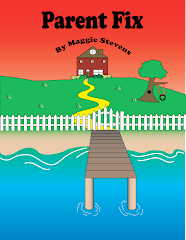Saturday, February 21, 2015
Why Do I Parent The Way I Do?
Have you ever wondered why you parent the way you do? As a parent do you feel the need to discipline over silly little things and find yourself relaxed over things that other parents find important. For example, “My children must wear their bike helmets if they ride their bike, but when they get on their skateboards, I don’t require them to put on a helmet.” Or, “When my daughter’s room is messy, I take away her cell phone but if she breaks her curfew, I seem to let her off the hook.” Sometimes our rational doesn’t make sense.
The good news is this might be something you can blame on your parents.. at least part of it anyway. We usually parent how our parents did, even if we hated how they did it. Why? Because often that is the only example we know. These examples are impressed upon our minds during childhood and represent much of what is referred to as “the unconscious”. The mind organizes itself into separate and discrete areas to deal with life’s circumstances. Later on as parents if we are unprepared in how we will deal with a situation we depend on our unconscious.
It probably drives you crazy to watch your parents discipline your children, their grandchildren. Many of their parenting techniques seem antiquated. Take for example spanking. Spanking used to be considered a positive form of discipline. We know better now. Many studies have been done on spanking in the U.S. and other countries. The evidence is clear that the effects of spanking are negative. The American Academy of Pediatrics and other professional organizations take a clear stand against the physical punishment of children.
Many of these parenting flaws in our lives end up becoming the “norm” in our homes because we were raised with them. The good news is if we understand where our parenting skills originated, they are easier to analyze and change.
Improvement comes when we can acknowledge that we are doing it wrong. Then it is important to believe these behaviors are preventable or can be changed. Parents should be able to identify the methods they are using as uplifting and beneficial or harmful and damaging. Children give immediate feedback to your parenting. Pay attention to their behavior and what they say. This type of parenting helps especially if you remember how you felt when your parents used those same tactics on you.
Some parents go so far as to let their children set their own rules and punishments. Oft times the kids set stricter on themselves than the parents would be.
One thing to remember:
You must be an example and model the behavior you desire. Children are too bright to be told to do one thing while they watch you do another. Be honest with your kids and in your dealings with others. Tell the truth. Admit to your children when you make mistakes in your parenting and apologize for them. Apologize when you get angry. Explain to your children what upsets you and why. If you find you cannot change all of your quirky behaviors you can at least acknowledge and laugh about them. This humorous act alone will give your kids the option for change.
Maggie Stevens/ParentFix
Subscribe to:
Posts (Atom)




